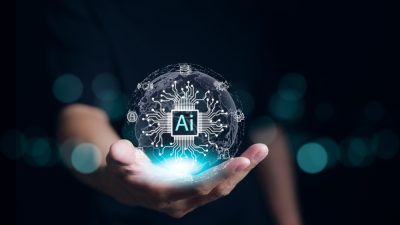Highlights:
- This transformation will reportedly create intelligent data ecosystems that are poised to support the next generation of data analytics solutions.
- Advancements in AI infrastructure and the emergence of intelligent data platforms are transforming the fields of data analytics and AI development, as per the Product Executive of Google.
The shift towards unified data platforms capable of managing diverse data types and seamlessly integrating AI workloads is revolutionizing the way enterprises handle and utilize their data. To put plainly, Google aims to transform enterprise data through multicloud integration and AI.
This transformation is enabling more efficient, scalable, and intelligent data ecosystems that can support the next generation of data analytics solutions.
“Every gen AI problem is actually a data problem to be solved, and so getting that data in shape. The challenge has been, as we get into gen AI and now multimodal gen AI, images and video and other modalities, actually, you’ve got to feed those gen AI models also with multimodal data,” said Yasmeen Ahmad, Product Executive – data, analytics and AI at Google Cloud.
Multicloud Integration: Bridging Data Across Platforms
Nowadays, it’s common for enterprises to have data spread across multiple cloud platforms like Google, Azure, and Amazon Web Services. Whether due to acquisitions, mergers, or the adoption of various software-as-a-service applications, the challenge is effectively connecting and utilizing this distributed data for generative AI applications.
“Every large enterprise is multicloud. So, this idea of really being able to connect data and leverage it for gen AI is top of mind for the execs I speak to. These gen AI models are hungry for data, for training,” said Ahmad.
According to Ahmad, the ability to integrate diverse data sources into a cohesive platform is essential for developing advanced AI solutions. Connecting data, regardless of its location, allows organizations to leverage robust data analytics and democratize data access, facilitating the widespread use of AI technologies across the enterprise. Ahmad emphasizes that unified data platforms are key to achieving this integration.
“For enterprises and companies, they need a single access control plane. So, that’s what we’re really focused on at Google … how do we provide that ease of an AI-ready data foundation that comes with that single control panel, where actually that data foundation supports all open formats … because data today lives everywhere and it needs to be interoperable. It needs to be moveable,” she said.
Unified Data Platforms: Revolutionizing AI and Analytics
The shift from traditional data warehouses to contemporary data platforms like Google LLC’s BigQuery marks a major advancement in data processing and utilization. These modern platforms now incorporate various engines to support diverse data processing requirements, including SQL, Spark, and Python, enhancing their versatility and ability to manage complex AI workloads.
Ahmad said, “When we’ve benchmarked BigQuery against other data platforms in the market, we see actually four times better for performance and three times better cost of actually having gen AI models close to the data executing.”
She noted that customers avoid the latency associated with data movement between cloud platforms and generative AI models, as well as the security concerns, costs, and complexities involved in building pipelines.
Ahmad explains that this unified data platform approach is designed to support a wide range of business intelligence and engineering workloads. It allows organizations to process data in diverse ways and extract valuable insights more efficiently. This move towards smarter and more automated data management solutions is poised to transform how enterprises handle data analytics and AI development.
“Gen AI today is that assistant who’s helping you code faster. But as we move into this agentic world, we’re seeing agents being able to actually learn tools and build pipelines on the behalf of the data engineer and actually accelerate data analytics to a degree that’s never been seen before,” Ahmad said.
According to Ahmad, advancements in AI infrastructure and the emergence of intelligent data platforms are transforming the fields of data analytics and AI development. Integrating multicloud environments and unified data platforms like BigQuery facilitates the creation of more efficient, scalable, and intelligent data ecosystems.
“For me, gen AI is really changing the game for data and analytics. I spoke to a customer who … had 16,000 dashboards across the organization, yet they felt insights-poor. Gen AI is going to change the game in this space with some of the new conversational analytics experiences that we are launching,” Ahmad said.





























































